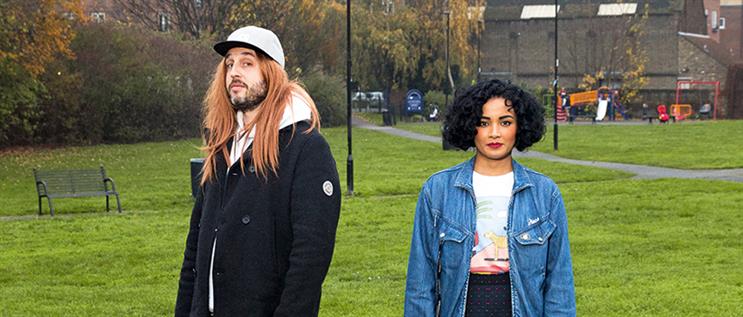An ad about Brexit, as Theresa May struggled to reach an exit agreement with the European Commission, was always going to divide opinion. But Dan Morris and Charlene Chandrasekaran, senior creatives at Droga5 London, didn’t expect it to generate quite so much controversy.
The campaign was for genealogy company Ancestry, which had data revealing that 60% of the average British person’s DNA originates somewhere in Europe. In the film, Europeans, including a German butcher and an Italian grandmother, serenade British people with Rick Astley’s 1987 song Together Forever. It ends with the line: "We may be leaving Europe, but Europe will never leave us."
"I don’t think there’s ever been so much discussion and debate about an ad we’ve done," Morris says. "People were either violently opposing or violently defending it – but that’s what you want from advertising. It shouldn’t just slip by."
Chandrasekaran and Morris’ work certainly hasn’t done that. Since joining Droga5 London in 2016 – the first major appointment by chief creative officer David Kolbusz – the pair has been a key part of the agency’s creative revival.
They came to advertising via different routes. Morris was introduced to the profession through his father’s old school friends, who included director Tony Kaye. Chandrasekaran was aimlessly flipping through a careers book when a description for an art director caught her eye. The pair met and teamed up while on the Watford Advertising Course.
After university the two landed at the celebrated agency Bartle Bogle Hegarty London. On discovering she had been hired by the agency in 2010, a time when BBH was at the top of its game, Chandrasekaran’s reaction was to cry. BBH was crowned 北京赛车pk10 Agency of the Year in both 2011 and 2012.
"Every other week there was another amazing brief," Morris says. "That schools you quickly because you’re competing against the best people."
Chandrasekaran and Morris’ contributions to BBH’s stellar output included moving work for St John Ambulance and a series of Axe ads in which men try to keep up with high-achieving women. "People still remember those," Morris says.
BBH was also where Chandrasekaran and Morris met Kolbusz, a relationship that would later change the course of their career. In 2015, Kolbusz returned to London after a stint at Wieden & Kennedy New York to recharge an agency that had failed to deliver on its ambition. Chandrasekaran and Morris had been at BBH for five years and were starting to feel restless when he came calling.
"Our guiding principle is to surround yourself with people you want to learn from. As soon as you start to feel too comfortable, you should leave," Chandrasekaran says.
Kolbusz’s ambition for Droga5 London matched Chandrasekaran and Morris’ own desire to broaden their horizons. "We wanted to do different types of work," Chandrasekaran says. "Everything [Kolbusz] had done at BBH felt fun. He’s not one who will say, alright, that will do."
Chandrasekaran and Morris faced a steep learning curve as they traded a big, established agency for a small, struggling outpost that founder David Droga had warned needed to "operate in a different way". But over the past two years they have proved they are up to the task. Instead of merely pontificating about reshaping advertising, Chandrasekaran and Morris are living up to their aspirations by creating entertaining and unusual campaigns.
They promoted the film Baywatch by hosting the world’s first "Slow Motion Marathon" in Los Angeles. To give a facelift to microwaveable burgers brand Rustlers, they developed a VR experience as well as an ad revisiting bleak moments in a man’s life from war to economic depression. Their idea was "when you compare [Rustlers] with other foods it might not seem good, but when you compare it with the atrocities of history it’s great", Morris says.
The brief for Ancestry started out bold, but along the way the clients began to lose their nerve. Still, the team managed to protect their idea. "You want clients to come along with you. You have to reach that middle ground of making them feel a bit uncomfortable but also giving them what they need," Morris says.
Now the pair is working on a campaign for next year that is "the strangest thing we’ve ever done", Morris says. It is yet another example of how they are redefining the role of a creative. "I don’t think we can even call it ads any more," Chandrasekaran says. "My mum thinks I just do the ads on TV, but I’m struggling to tell her what my job is."
Chandrasekaran and Morris are lucky; they have made a home in a place that allows them to experiment. They may not be able to change all the bad advertising out there, but they can play a small part. As Chandrasekaran vows: "All you can say is, well, I’m not going to do that."
Dan Morris and Charlene Chandrasekaran are senior creatives at Droga5 London



